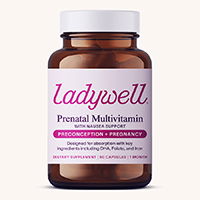Polycystic Ovary Syndrome (PCOS) is a common hormonal disorder that affects about 1 in 10 women of reproductive age. It can lead to a variety of symptoms, including irregular menstrual cycles, excess hair growth, acne, and difficulty getting pregnant. Understanding PCOS is crucial for managing its symptoms and improving overall health. In this blog post, we will explore what PCOS is, its causes, symptoms, diagnosis, and treatment options.
What is PCOS?
PCOS, or Polycystic Ovary Syndrome, is a condition characterized by hormonal imbalances, specifically involving elevated levels of androgens (male hormones) in women. The term “polycystic” refers to the presence of multiple small, fluid-filled sacs or cysts in the ovaries. However, not all women with PCOS have these cysts, and the condition’s diagnosis relies more on a combination of symptoms and hormone levels.
Common Symptoms of PCOS
The symptoms of PCOS can vary significantly among individuals, but some of the most common include:
- Irregular Menstrual Cycles: Women with PCOS often experience irregular periods, which can include missed periods, fewer than eight periods a year, or heavy menstrual bleeding.
- Excess Androgen Levels: Elevated levels of male hormones can cause physical signs such as excess facial and body hair (hirsutism), severe acne, and male-pattern baldness.
- Polycystic Ovaries: Enlarged ovaries with multiple small cysts can be detected through ultrasound imaging.
- Weight Gain: Many women with PCOS struggle with weight gain or obesity, which can exacerbate other symptoms.
- Fertility Issues: PCOS is one of the leading causes of infertility in women due to irregular ovulation or anovulation (the absence of ovulation).
-
Skin Changes: Darkening of the skin, particularly along neck creases, groin, and underneath breasts, known as acanthosis nigricans, can occur.
Causes of PCOS
The exact cause of PCOS is unknown, but several factors may contribute to its development:
- Insulin Resistance: Many women with PCOS have insulin resistance, meaning their bodies cannot effectively use insulin, leading to higher insulin levels. Excess insulin may increase androgen production, causing difficulty with ovulation.
- Hormonal Imbalance: Elevated androgen levels disrupt the normal balance of female reproductive hormones, preventing the ovaries from releasing an egg (ovulation) each month.
- Genetic Factors: PCOS tends to run in families, suggesting a genetic predisposition. If a mother or sister has PCOS, the likelihood of developing it increases.
-
Inflammation: Research shows that women with PCOS often have increased levels of inflammation, which can stimulate polycystic ovaries to produce androgens.
How is PCOS Diagnosed?
Diagnosing PCOS typically involves a combination of medical history, physical examination, and specific tests:
- Medical History and Symptom Review: A healthcare provider will ask about menstrual cycles, weight changes, and other symptoms that may suggest PCOS.
- Physical Examination: A physical exam may include checking for signs of excess hair growth, acne, and other symptoms associated with higher androgen levels.
- Blood Tests: Hormone levels, including androgens, insulin, and blood sugar levels, will be measured to identify any imbalances.
-
Ultrasound: An ultrasound may be used to examine the ovaries for cysts and the thickness of the uterine lining.
Treatment Options for PCOS
While there is no cure for PCOS, several treatments can help manage the symptoms and reduce the risk of long-term health problems:
Lifestyle Modifications:
- Diet: A balanced diet rich in whole foods, low in refined carbohydrates, and high in fiber can help manage insulin levels and support weight management.
- Exercise: Regular physical activity can improve insulin sensitivity, aid in weight management, and reduce the risk of cardiovascular disease.
- Weight Loss: Losing even a small percentage of body weight can help regulate menstrual cycles and improve symptoms.
Supplements:
- Ladywell's Daily Hormone Balance is ideal for those with PCOS to help promote hormone balance, regular menstrual cycles and healthy ovulation.
- Herbal teas like spearmint tea and saw palmetto may help reduce androgen levels and manage symptoms.
Medications:
- Birth Control Pills: Oral contraceptives can help regulate menstrual cycles, reduce androgen levels, and clear up acne. There are side effect though so this is a personal choice for your body.
- Metformin: A medication commonly used for type 2 diabetes, metformin can improve insulin resistance and lower insulin levels.
- Anti-Androgens: Medications like spironolactone can help reduce excessive hair growth and acne by blocking the effects of androgens.
- Fertility Medications: For women trying to conceive, drugs like clomiphene or letrozole can stimulate ovulation.
Surgical Options:
-
Laparoscopic Ovarian Drilling: This minor surgical procedure involves making small holes in the ovaries to reduce androgen levels and stimulate ovulation.
Living with PCOS
Living with PCOS can be challenging, but many women find ways to manage their symptoms effectively through lifestyle changes, medication, and support. It is important to work closely with healthcare providers to develop a personalized treatment plan that suits individual needs. Joining support groups or seeking counseling can also provide emotional support and valuable resources.
Conclusion
PCOS is a common condition that affects many aspects of a woman’s health, from her menstrual cycle to her fertility and beyond. Understanding the symptoms, causes, and treatment options is crucial for managing the condition and improving quality of life. If you suspect you have PCOS, consult a healthcare provider for an accurate diagnosis and appropriate treatment plan.
Disclaimer
The information provided in this blog is for educational purposes only and is not intended as a substitute for professional medical advice. Always consult a qualified healthcare provider before making any changes to your health regimen, especially if you are pregnant, nursing, or taking any medications.

















































